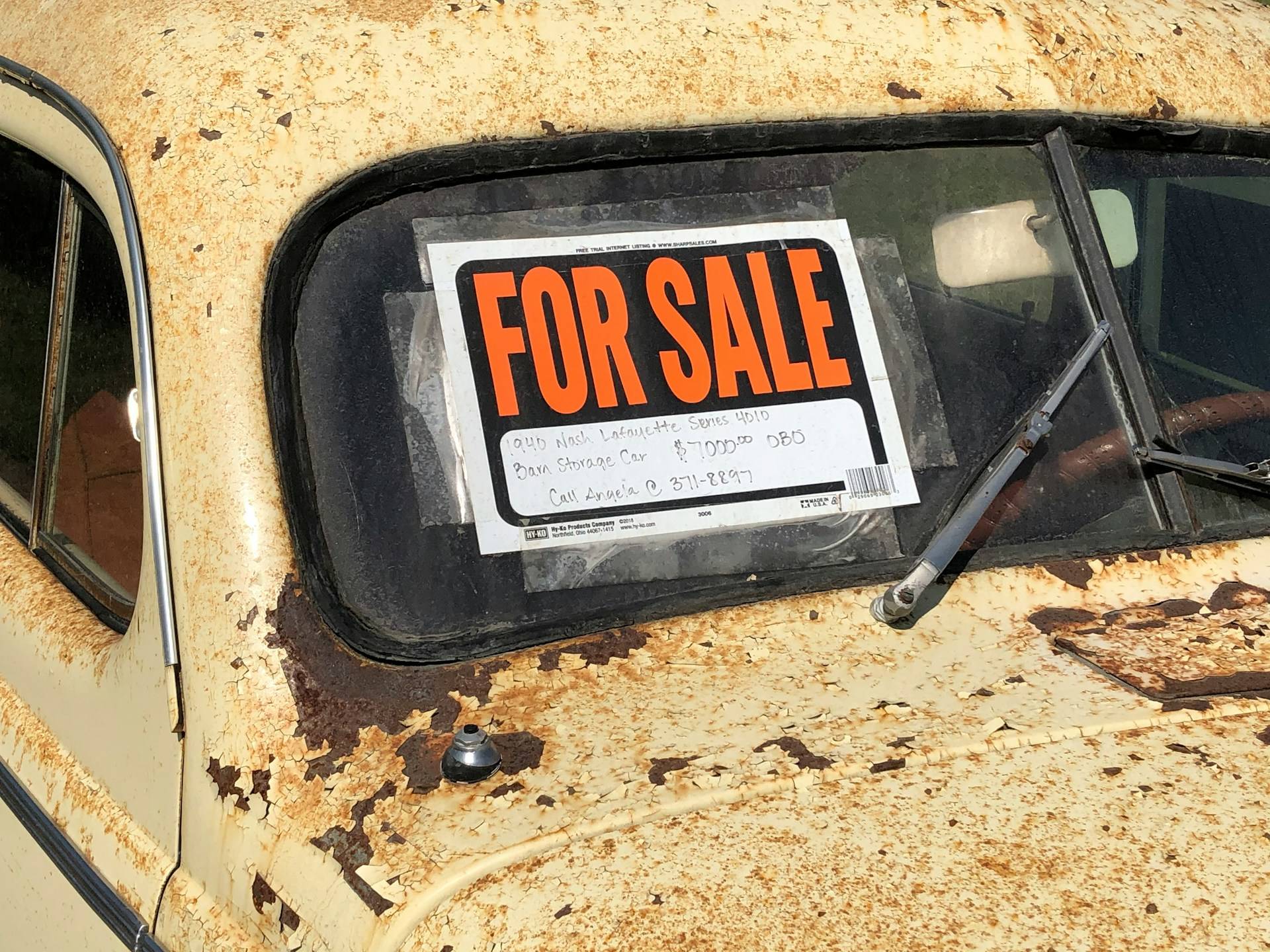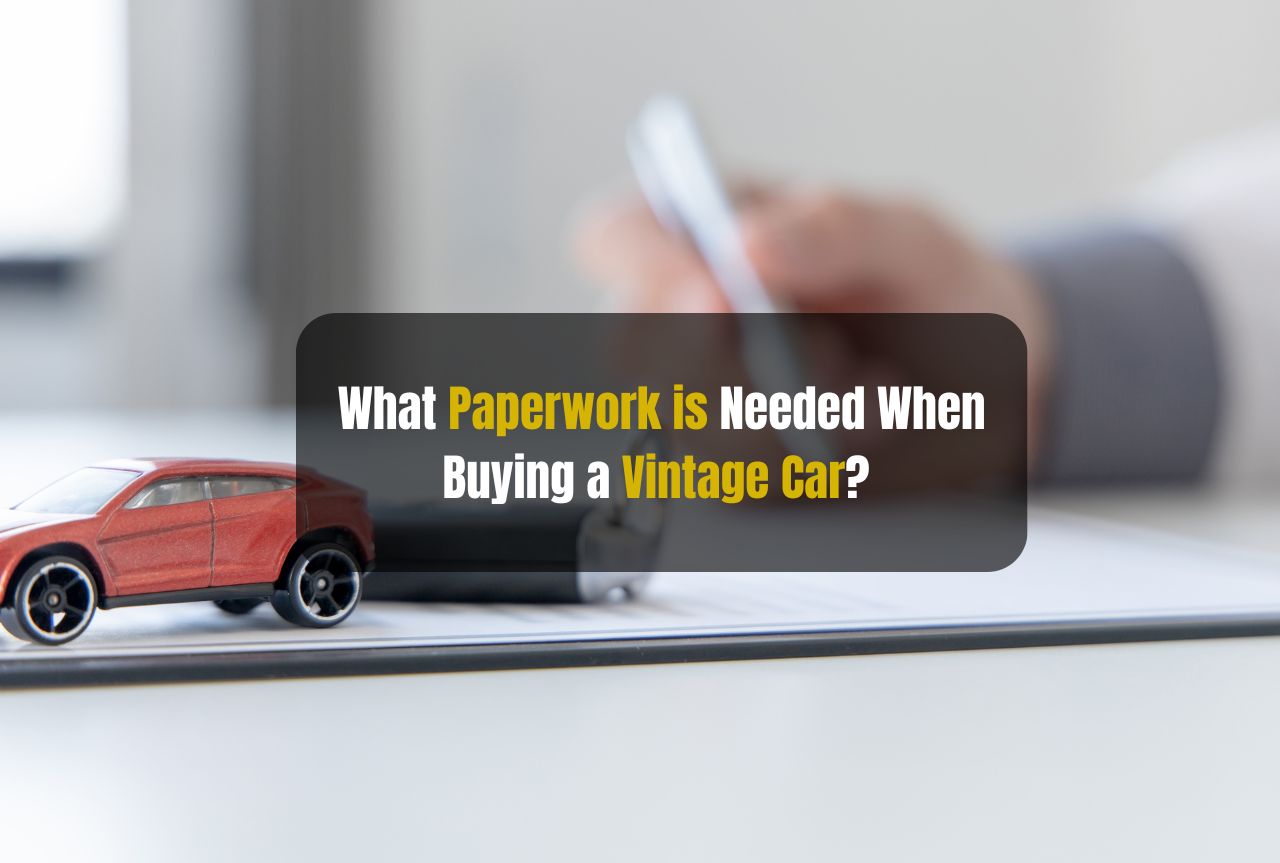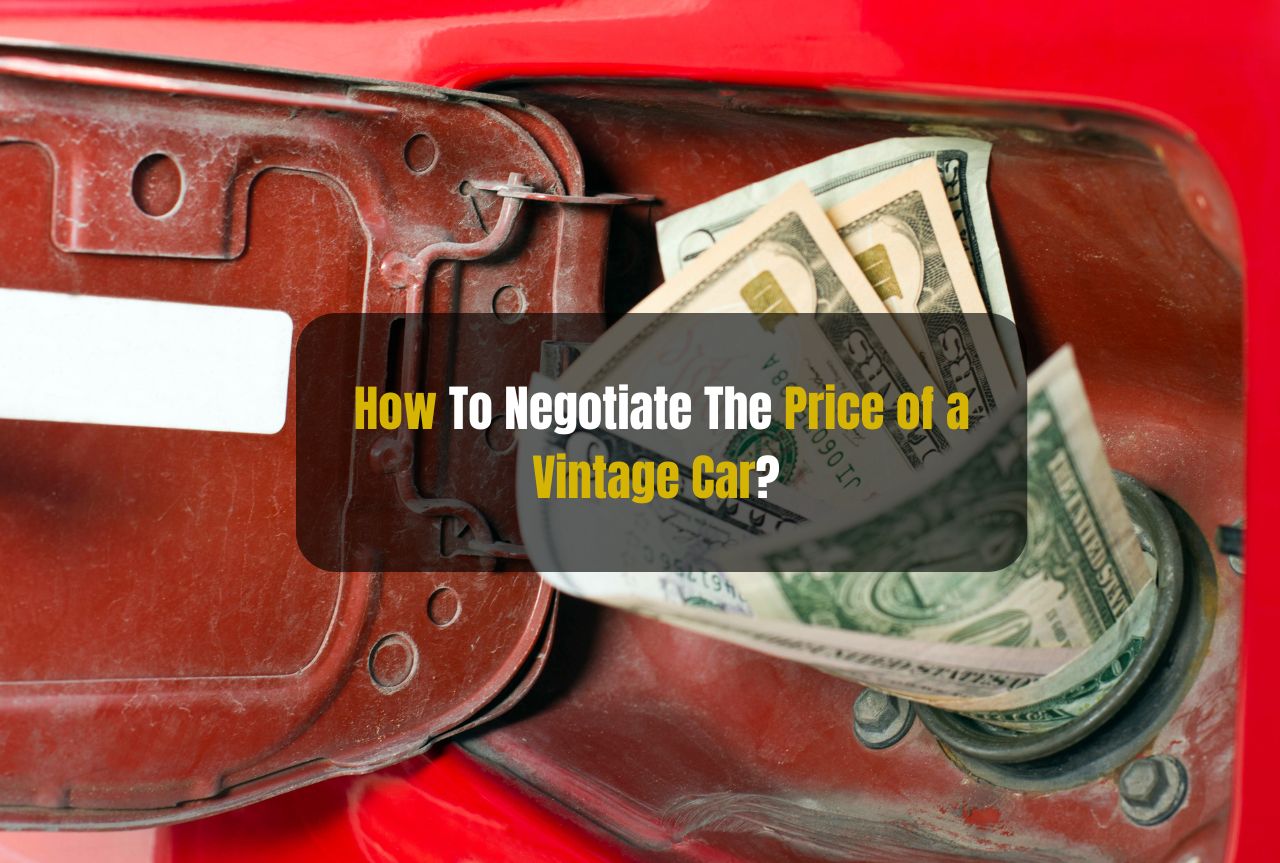Buying a vintage car, no matter how exciting, can be a challenging occasion: unlike a new vehicle, a vintage car comes with a history, conditions, and the possibility of issues or unexpected habits, so in addition to finding the right model and condition, you should ask yourself and your seller a bunch of questions before purchasing.
You may feel like you want to truly embrace the vintage situation and leave it all up to chance. However, asking the right questions is essential to making a well-informed decision and avoiding unpleasant surprises, both in the short and long run.
Understanding the Basics
What is the Car’s History?
A vintage car’s history reveals a multi-layered history; it’s a palace of pasts. As a prospective buyer, you need to know the car’s lineage, the broader milieu, and where it’s been. Find out what it was like, what it did, and what people thought of it. Here are some questions to ask the seller.
- How many previous owners has the car had?
- What was the car primarily used for (daily driving, shows, storage)?
- Are there any records of accidents or major repairs?
Understanding the car’s history helps you gauge its condition and potential future issues.
Is There Documentation Available?
Buying a vintage car is easier if you have documentation, such as maintenance records, repair receipts, and the original manuals. Make sure to ask the seller for:
- Complete service history and maintenance records.
- Receipts for any repairs or restorations.
- Any documentation proving the car’s authenticity and originality.
Proper documentation can increase the car’s value and provide peace of mind.
What is the Car’s Current Condition?
Unfortunately, a really good diagnosis requires a detailed appreciation of what went on to the vehicle in the first place. Specifically, I would ask the following:
- Engine and transmission condition.
- Brakes and suspension status.
- Exterior and interior condition.
- Any rust or corrosion present.
Consider hiring a professional mechanic for an independent inspection to verify the seller’s claims.
Diving Deeper into Specifics
Has the Car Been Restored?
Restoration dramatically affects the value of a classic car. To what degree does restoration change the value and the authenticity of a vintage car? Ask the owner:
- When was the restoration completed, and who did it?
- Were original parts used, or were replacements needed?
- What aspects of the car were restored (engine, body, interior)?
Restoration quality varies widely, so it’s important to assess the work done thoroughly.
Are There Any Modifications?
Modifications can affect a car’s value and performance. Inquire about:
- Any engine upgrades or changes.
- Modifications to the car’s body or interior.
- Changes to the suspension, brakes, or exhaust system.
Some of these changes could improve the car, while others could take away from its historical integrity and value.
How is the Car’s Mechanical Condition?
The mechanical condition of a classic car determines how much time it spends breaking down and the cost of keeping it working. Relevant questions include:
- When was the last time the car was serviced?
- Are there any known mechanical issues?
- How does the car handle various driving conditions?
A test drive is a must to assess the car’s performance and comfort personally.
What is the Mileage?
Mileage is a key factor in assessing a vintage car’s wear and tear. Ask:
- What is the car’s current mileage?
- Is the mileage original, or has the odometer been replaced?
Low mileage can indicate less wear, but it’s also important to verify its accuracy.
Financial Considerations
What is the Asking Price?
When it comes to determining whether or not the seller’s asking price is reasonable, the first consideration is that: 1. You don’t know why the seller is asking that much. Questions you could ask are:
- How did you determine the asking price?
- Is the price negotiable?
- Are there any additional costs (transportation, taxes, registration)?
Compare the asking price with market values to ensure you’re getting a fair deal.
How did you determine the asking price?
- Is the price negotiable?
- Are there any additional costs (transliteration, taxes, registration)?
Compare the asking price with market values to ensure you’re getting a fair deal.
Are There Any Warranties or Guarantees?
Warranties on vintage cars are rare, but it’s worth asking:
- Is there any warranty or guarantee offered?
- Are there return policies if the car has undisclosed issues?
Warranties can provide an extra layer of security in your purchase.
What are the Ownership Costs?
Owning a vintage car involves ongoing costs. Key questions to consider:
- What are the typical maintenance costs?
- How much are insurance premiums for this model?
- Your reports are readily available. What are their costs?
Understanding these costs helps you budget for your new situation.
Legal and Logistical Aspects
Is the Car Legally Registered?
Ensuring the car is legally registered prevents future headaches. Ask:
- Is the car currently registered and has a clear title?
- Are there any outstanding liens or legal issues?
Verify the title and registration documents are in order before purchasing.
Can I Get a Test Drive?
We test-drove the car, ensuring performance indicators were as good as we anticipated. Pay particular attention to 1) Performance indicators you could check during a test drive.
- Engine performance and responsiveness.
- Braking and handling.
- Comfort and ease of driving.
Requesting a test drive is a standard part of the buying process.
How Will the Car be Delivered?
Discussing delivery logistics is important, especially for long-distance purchases. Ask:
- Who is responsible for delivery and shipping costs?
- What is the expected delivery timeline?
- Are there any specific delivery requirements?
Ensure all delivery details are clear and agreed upon in writing.
Finalizing the Purchase
Can I Have a Pre-Purchase Inspection?
A pre-purchase inspection by a qualified mechanic is crucial. Ask the seller:
- Are you open to an independent pre-purchase inspection?
- Can the inspection be conducted at a location of my choice?
- Who will bear the cost of the inspection?
An inspection can reveal hidden issues that might not be apparent otherwise.
What Payment Methods Do You Accept?
Clarify the acceptable payment methods to avoid any issues. Common questions include:
- What payment methods do you accept (cash, bank transfer, financing)?
- Are there any payment terms or conditions?
- Do you require a deposit?
Ensure the payment method is secure and documented.
Is There a Bill of Sale?
A bill of sale is compulsory for any sale. It must contain:
- Detailed information about the car (VIN, make, model, year).
- Purchase price and payment terms.
- Signatures of both the buyer and seller.
A bill of sale serves as proof of purchase and protects both parties.
In Short
Buying a vintage car can be a satisfying experience, provided your questions are well-chosen and your budget well-capitalized!







Leave a Comment